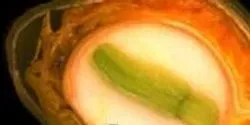Biology

A University of Alabama in Huntsville (UAH) biology professor's experiment that is set to fly to the International Space Station (ISS) could shed new light on the roles enzymes play in biological processes.

Unique research by UC Riverside biologists on wild anole lizards reveals new insights on how animals might adapt to their habitat and handle various forms of motion

A new type of biomolecular tweezers could help researchers study how mechanical forces affect the biochemical activity of cells and proteins. The devices – too small to see without a microscope – use opposing magnetic and electrophoretic forces to precisely stretch the cells and molecules, holding them in position so that the activity of receptors and other biochemical activity can be studied.

Lab success doesn’t always translate to real-world success. A team of Michigan State University scientists, however, has invented a new technology that increases the odds of helping algae-based biofuels cross that gap and come closer to reality.

A collaborative experiment involving a Kansas State University biochemist may mark the beginning of an effective, environmentally friendly plant-based method of insect control.
















